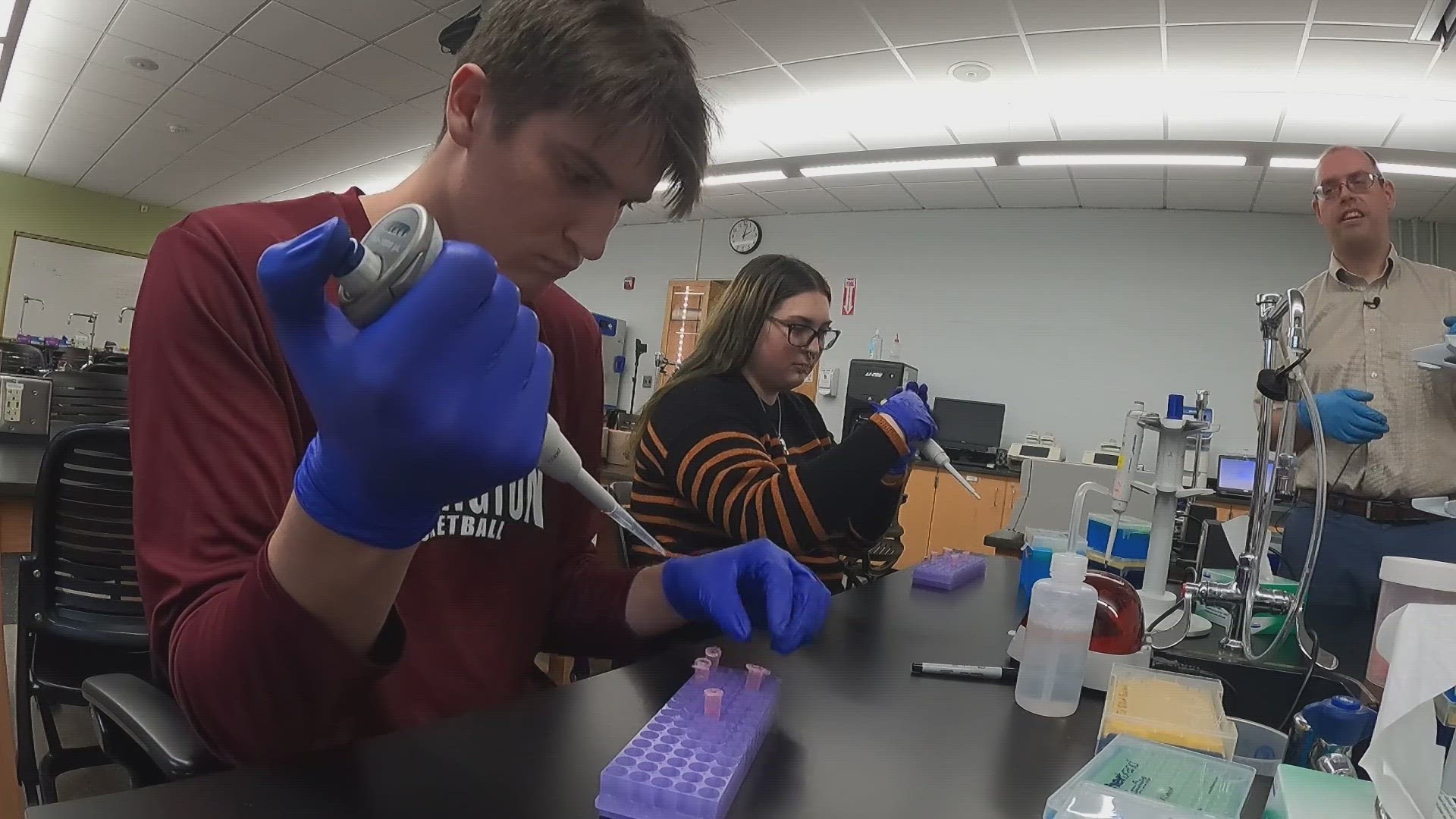FARMINGTON, Maine — A biology professor and students at the University of Maine Farmington could be on the brink of new research and possible treatment for several diseases.
The focus of the project, funded by a grant from the National Science Foundation, is based on a family of genes in fish that are very similar to ones found in humans.
Two years ago, University of Maine Farmington biology professor Timony Breton discovered a new gene in the cell membrane of fish that had only been found previously in animals and people. "In the past few years, we made some key breakthroughs to get a look at these more," Breton said.
Breton will build on that breakthrough — studying the behavior of a family of hormone receptors in fish. They bind hormones in the body and tell the cells to grow. Research that could lead to understanding some diseases — including diabetes, schizophrenia, and autism spectrum disorder.
"What is their function? And maybe we can use the information to determine the specific potential treatments or uses in humans," Breton explained.
Breton is setting up the lab with powerful new equipment including a cryostat machine — which will allow researchers to slice fish samples sent to UMF from the University of Florida, treated with chemicals developed by scientists in Europe.
"To see in each cell where these genes are and how many cells are in them," Breton explained.
The cutting-edge project will give UMF biology majors hands-on experience as student researchers. Will Harriman is a junior from Biddeford who hopes to attend medical school.
"It's only us in the world studying this topic. It's pretty cool if we find answers," Harriman said.
"People will want to come here for research and work with these pieces of equipment," Eme Sacerse, a UMF senior biology major, added.
Breton says the grant will allow UMF to hire 13 student research assistants over the next three years. The project will also provide data and research to students and teachers at four area high schools: Skowhegan, Dirigo, Mt. Blue, and Oxford Hills.
"Let them explore these genes and their functions, and let them make discoveries alongside us," Breton enthused.
The project, Breton says, is also seen as an essential recruitment tool for high school and college students as the life sciences sector, with more than 9,000 jobs, continues to grow in Maine.

